Oracle is stronger than Batgirl will ever be
Making the argument for the depiction of superheroes who use a wheelchair with Barbara Gordon, a.k.a. Oracle or Batgirl
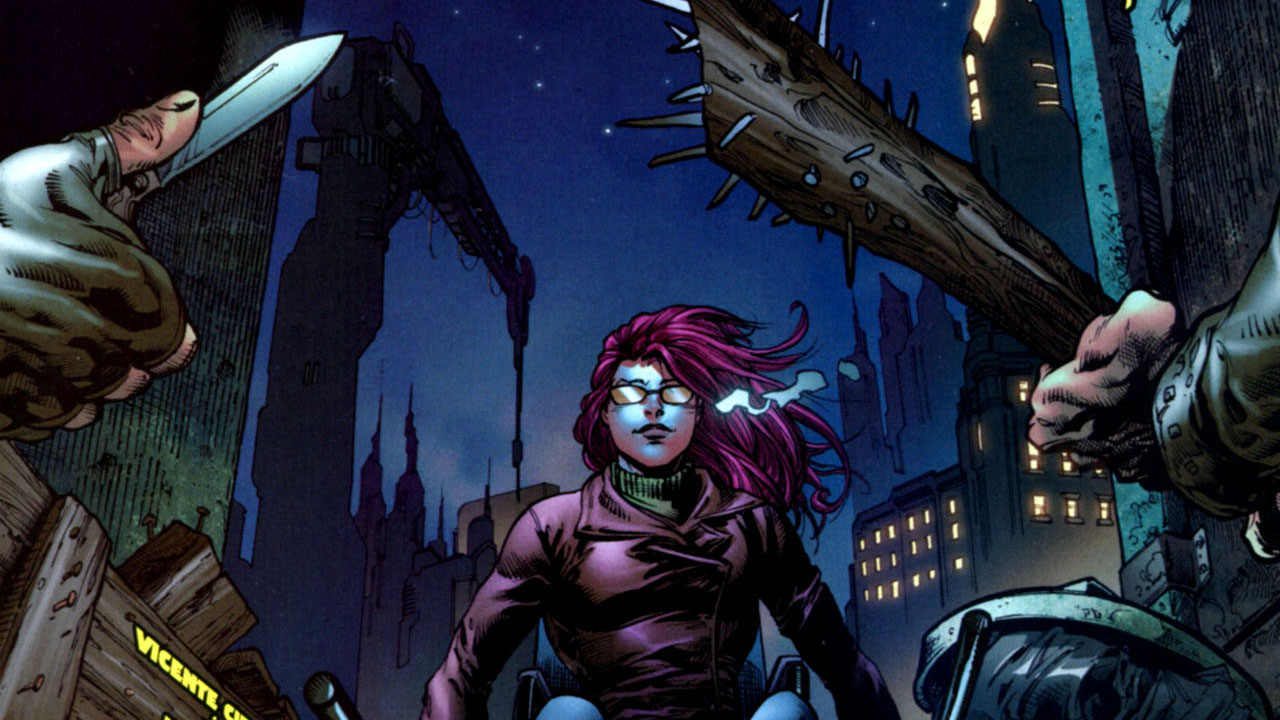
The following was originally published in 2011, just after DC announced Barbara Gordon (a.k.a. Oracle) was returning as Batgirl for the 'New 52,' receiving a special implant to cure her paralysis since the Joker shot her in the spine in 1988's Batman: The Killing Joke.
Who's your symbol for strength in the DC universe? I'm sure a lot of you are thinking Superman or Batman right now. They've certainly got the physical strength and fortitude to make them the perfect candidates. While Batman is my all-time favorite character in comics, he's not the first person I look to when I need to be reminded to keep fighting in this world. For that, I look to Oracle.
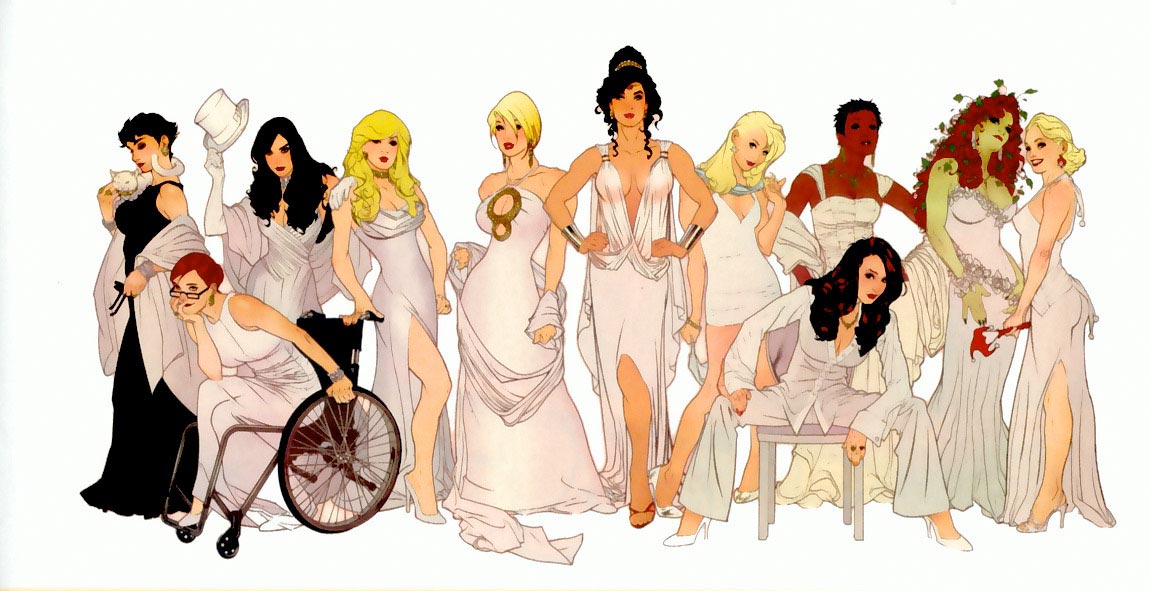
For those of you who aren't aware, I'm 28-years-old, I'm a natural redhead, and I've spent the last fourteen years or so using a wheelchair. I'm not paralyzed like Barbara Gordon, I have a disease called Muscular Dystrophy (MD). There are over 40 different types of MD, I have one that is referred to specifically as Spinal Muscular Atrophy. It's a degenerative disease that, with different levels of severity, causes progressive muscle deterioration and weakness in all aspects of the human body. I say I started using a wheelchair 14 years ago, prior to that, my body was able to withstand walking the distances I needed to go. That hasn't been the case for a while and things are only downhill from here unless science finally has a breakthrough. I know it will happen, I was part of a drug study just last year to help further things along, but will it happen in my lifetime? There's no guarantee.
I'm not telling you all this to get your sympathy or pity. That's truly the last thing I want. This is my life, it always has been, I don't know anything else. I don't know what it's like to walk up a flight of stairs un-aided or get up off of the floor after falling. This is my reality and I have adapted over the years to do the best I can. I'm giving you this background, firstly for awareness but also so you know how deeply the news of Barbara Gordon no longer being Oracle affects me personally. Oracle is my symbol. Just like Superman, Batman, and Wonder Woman are symbols for many others. Hell, Superman became a symbol for some of the disabled community when actor Christopher Reeve was paralyzed. But Superman isn't disabled. Superman can fly, run, and jump better than any person ever could. And that will always be the case.
To say I'm disheartened and disappointed by DC's decision would be an understatement and only part of my feelings on the matter. To be honest, I'm furious. I'm hurt. For all their fictionality, we let characters become very important to us and Oracle was the most important to me. When I was told the news, I cried. I had to take several steps back before I could write this piece so I could do it with a calmer head. I'm sure he'd said similar things on other occasions but I was there at Wizard World Philadelphia in 2008 to hear DC's Dan DiDio answer a question one fan asked about whether or not Barbara would walk again. His response, "No. Never."
Business practices and editorial edicts aside, it was something I took to heart. That DC understood what this character meant, what she stood for, and that she was so much more in the wheelchair than out. I know a lot of people who wanted Barbara back in the Batgirl costume simply because they felt it was ridiculous for someone to be in a wheelchair in a world where people are brought back to life on a regular basis or cured of various other illnesses just fine. A perfectly logical argument of course but what these people fail to realize is what Oracle as a character truly is.
While I love Barbara as a character no matter what she's sitting in or wearing, I always preferred her as Oracle because of her depth of character. I never felt Barbara has a significant reason to fight crime other than following in her father's footsteps or thinking it would be fun. Why did Barbara really become a crimefighter? Because she was determined to do what others told her she shouldn't or couldn't do. That part of her character never changed and is something I deeply admire about her.
Get the best comic news, insights, opinions, analysis and more!
Asked to contribute to the blog DC Women Kicking Ass' series titled, 'The Most Memorable Moments in DC History for Women.' I was assigned the task of writing about a Barbara-Batgirl moment, not a Barbara-Oracle one. In it, I wrote, "Barbara is strong both physically and mentally, determined, intelligent, altruistic and loyal. And all of that was before she even became a crimefighter."
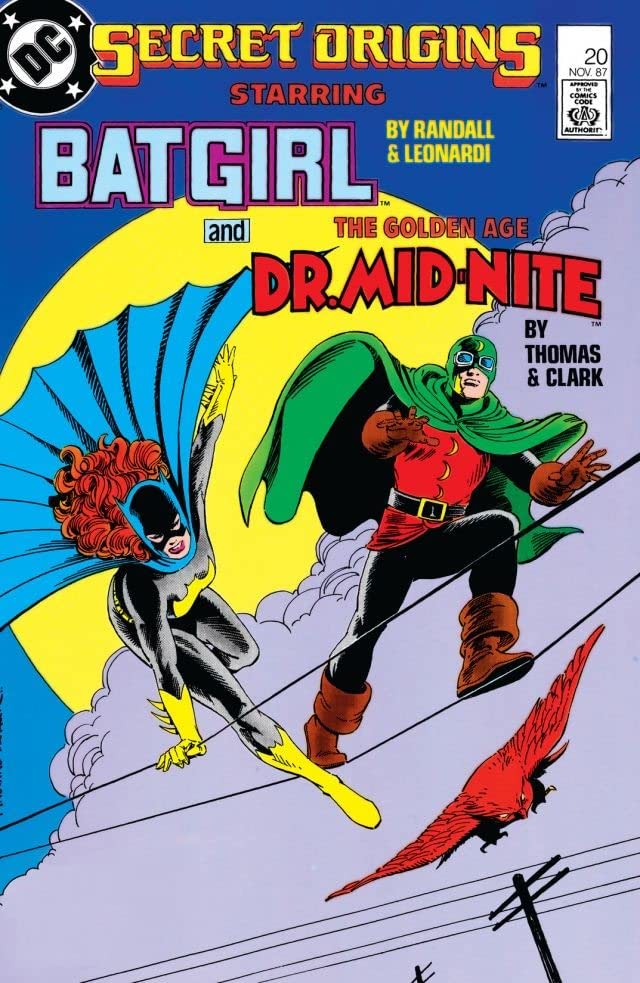
In Secret Origins #20 from 1987 written by Barbara Randall, Barbara has an argument with Batman about her stepping into crimefighting. After secretly encouraging her, Batman condescendingly tells her she needs to be careful. "Don't talk down to me Batman!" she yells, "You have no idea what I can or can't do! But you'll find out!" And sure enough, we did. Barbara became capable of anything, rising even further when her physical abilities were taken away, giving her a genuine reason to fight crime.
Putting aside the real world for a moment, Hollywood and pop-culture themselves are still leagues away from depicting the everyday life and struggles of those living with chronic illnesses. In the Twilight Saga, a character's father, who is wheelchair-bound, finally has a ramp to get into his house in the fourth film of the series. Fourth. Film.
In X-Men: The Last Stand, Professor Xavier isn't shown getting out of their 4-door sedan when heading to Jean Grey's old house and you may notice his wheelchair isn't the kind you can just fold up and stick in the trunk.
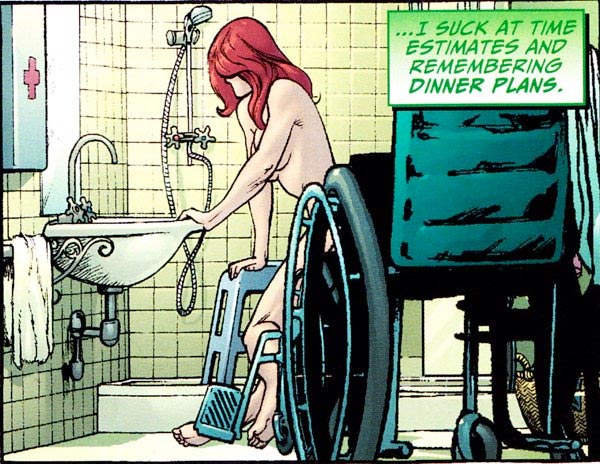
Speaking of X-Men, while heading to the theater for X-Men: First Class this past weekend, I asked an employee who was taking my ticket if there was an entrance at the top of the stadium-seating theater. He said no. It was only after I parked my chair on the ground level, just eight rows from the giant screen, and my brother carried me up the stairs so we could sit in the more comfortable visually middle section of the theater that we realized there was, in fact, an entrance at the top level. So it's not just in movies and television, it's everyday life. You'd be stunned by how often this type of thing happens to me.
Odds are, if you don't know someone with a disability, their issues have never crossed your path. When I make a new friend there's a learning curve to be had. Questions have to be asked, "How many steps are there to get in your house?" "Can the trunk of your car fit my wheelchair?" "Is where we're going handicapped accessible?" This is a brand-new world for my friend, for me, it's everyday life. Even when I call an establishment specifically to find out of they are accessible, many times I turn up and find one step barring my entrance to their front door. The person never notices that one step they walk up every day to get into work.
On a more personal level, I'd love to live in Brooklyn. A lot of my good friends reside there, but you know what? I can't. Even if I found an apartment that was, in fact, handicapped accessible, a good portion of the businesses in the area are not. Not to mention subway stops to get to other areas of town or into Manhattan. Even the ones that say they are usually turn out not to be and other arrangements have to be made.
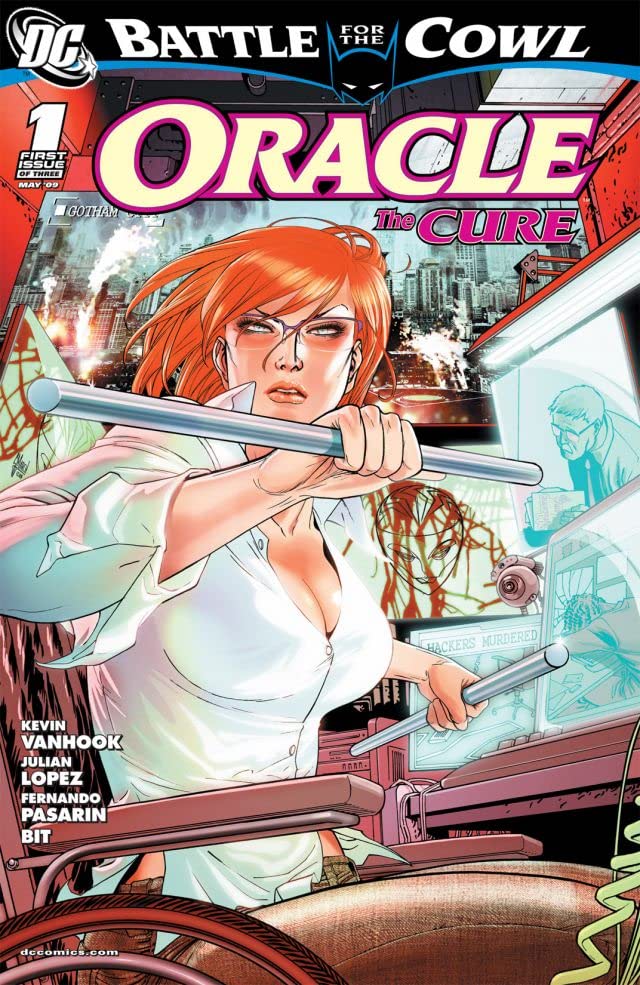
My point is, people being disabled is part of the real world, it is essential it be part of the fictional world as well. Especially if DC is dedicated to a diverse universe. And I don't mean, "You have to keep Oracle around because I'm in a wheelchair," I mean for everyone. Are there people of every race, religion, and sex in the world? Yes, so let your comics reflect that as well as many other diverse subsets there are out there. Writer Kevin Van Hook did a great job showing what disabled individuals have to go through in the limited series Oracle: The Cure. It's that type of honestly I expect more of.
Barbara Gordon deserves to be Oracle. She deserves to be the symbol she's become. A beacon of light in a world filled with super-powered heroes who can save the day with their physical strength Oracle fights with her mind and her determination. A part of her identity is being ripped away. Of course, at this time we don't know whether or not Barbara will be cured or simply retconned to where the Joker never shot her in the spine but either way, giving Oracle back the use of her legs to bring her back to her iconic role is a travesty. Every hero has a defining moment that makes them who they are. Batgirl didn't. Oracle did.
Like I mentioned in last week's 'Hey, That's My Cape!,' the stories I've enjoyed about Oracle will still be around for me to reread and take the same meanings and strength from but Barbara will go on to become something different to me from here on out. Oracle was one of the best things that happened to the DCU and DC Comics' editorial. While some diverse characters were mishandled over the years, Oracle was always treated with the utmost respect but this move is the most disrespectful I've seen in a long time.
Jill Pantozzi is the editor of io9 and known in the entertainment industry as 'The Nerdy Bird.' Previously she was editor in chief of The Mary Sue and has written for HitFix at Uproxx, MTV, Tor, Playboy, Publishers Weekly, Blastr (Syfy Wire), IGN, and more. You can keep up with Jill, and her cats, on Twitter at @JillPantozzi



